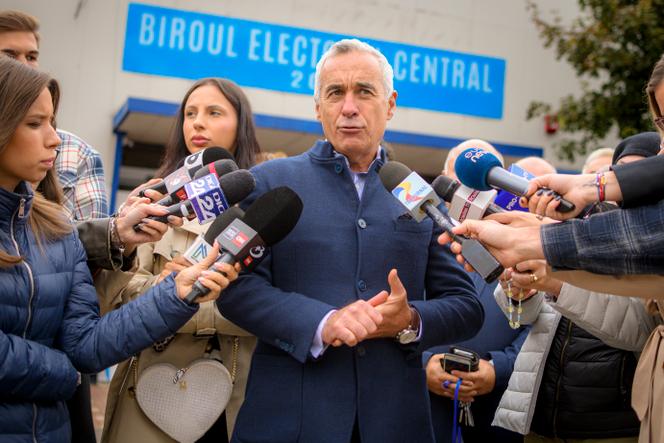


The first round of the Romanian presidential election, held on Sunday, November 24, disrupted the traditional political landscape. Among the 14 candidates in the running, an outsider unknown to the general public named Calin Georgescu, who is an admirer of Vladimir Putin and has expressed contempt for NATO and the European Union, thwarted all predictions by coming out on top of the vote with 22.94%.
"Economic insecurity has turned into political insecurity. My victory reflects the awakening of a people tired of being humiliated," said the 62-year-old agricultural engineer and former special rapporteur for human rights at the United Nations after the results were announced. His anti-system, sovereignist rhetoric has clearly resonated with many Romanians in search of change. In any case, he embodies a shift to the far right in a country neighboring war-torn Ukraine.
Georgescu's breakthrough has raised concerns within NATO, which considers Romania as a strategic pillar for European defense. With a population of 19 million, Romania is home to several Atlantic Alliance bases. More than a thousand French troops are deployed on its territory, which is also home to a US missile defense shield.
Against the backdrop of the war in Ukraine, Georgescu's previous statements openly critical of NATO are cause for concern. "The missile shield is a disgrace. It is not a defense, but a policy of confrontation. It will not bring us peace," he denounced in 2021. This perspective sharply contrasts with Bucharest's current stance.
His victory in the first round of the presidential election was celebrated by the Russian press. International news agency RIA Novosti, quoted by the daily Kommersant, wrote: "Georgescu's breakthrough is a surprise. NATO membership does not guarantee Romania's security."
Georgescu is not alone. George Simion, leader of the ultranationalist Alliance for Romanian Unity (AUR) party, won 13.87% of the vote. At 38 years old, he has made a name for himself through nationalist speeches and a meteoric political rise. A member of parliament since 2020, he had previously proposed Georgescu as prime minister in the midst of a government crisis.
Their ties were strained after accusations were made against Georgescu for expressing support for controversial historical figures. However, the election results have brought them closer together. "Together, our scores represent nearly 40% of the vote. It's a vote for sovereignism," Simion said enthusiastically. Their potential alliance could make the second round a test for Romania's democratic and European future.
You have 50.04% of this article left to read. The rest is for subscribers only.
